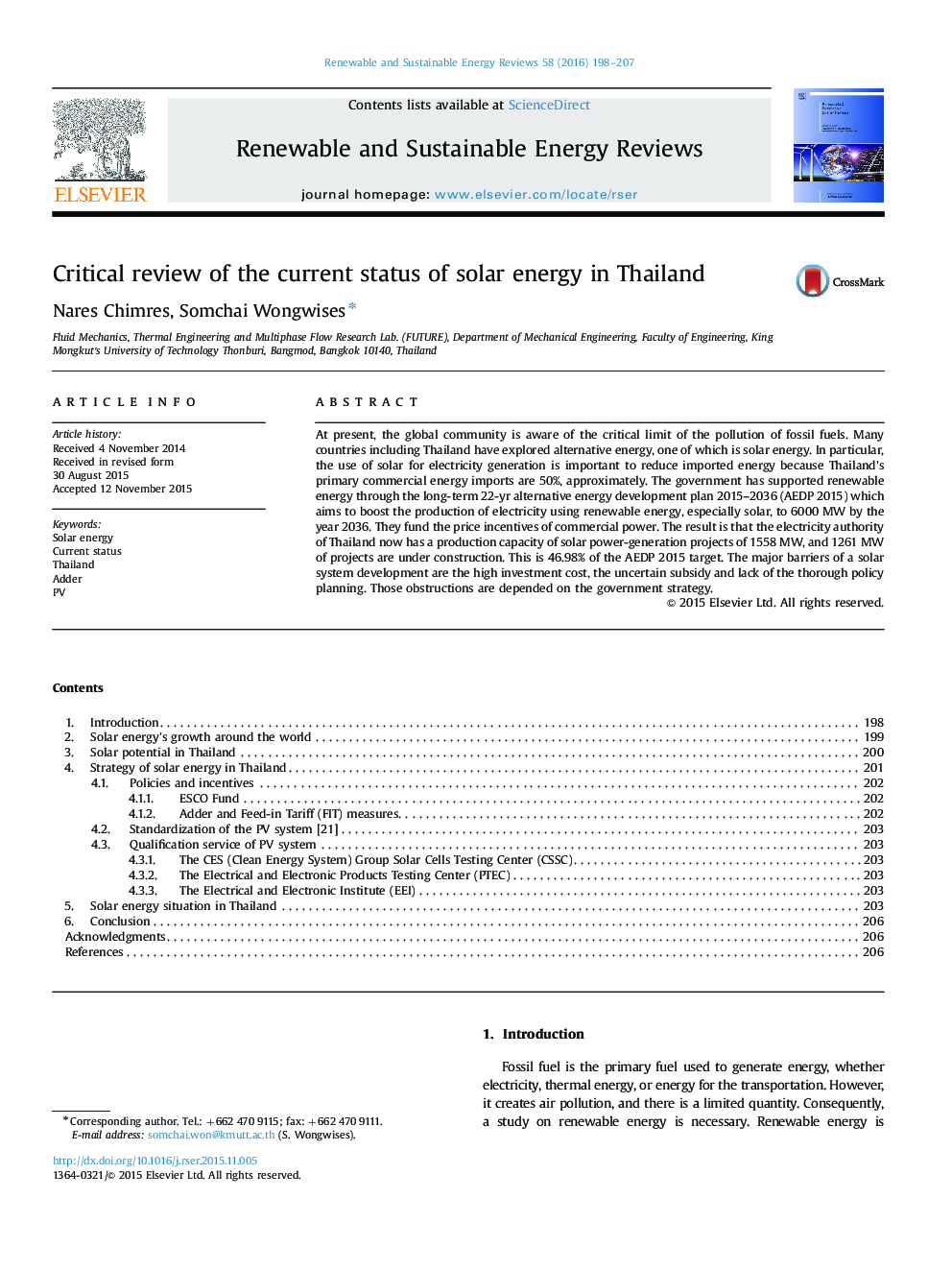| Article ID | Journal | Published Year | Pages | File Type |
|---|---|---|---|---|
| 8114008 | Renewable and Sustainable Energy Reviews | 2016 | 10 Pages |
Abstract
At present, the global community is aware of the critical limit of the pollution from fossil fuels. Many countries, including Thailand, have explored alternative energy, one of which is solar energy. In particular, the use of solar power for electricity generation is important to reduce imported energy because Thailand's primary commercial energy imports comprise approximately 50%, of all of Thailand's energy. The government has supported renewable energy through the long-term 22-year Alternative Energy Development Plan 2015-2036 (AEDP 2015), which aims to boost the production of electricity using renewable energy, especially solar, to 6000 MW by the year 2036. The government has the price incentives for power producers. The result is that the Electricity Generation Authority of Thailand (EGAT), Provincial Electricity Authority (PEA), and Metropolitan Electricity Authority (MEA) have a production capacity of solar-power-generation projects of 1558 MW, and the projects of 1261 MW are under construction. This is 46.98% of the AEDP 2015 target. The major barriers of solar-powered-system development are the high investment cost, uncertain subsidies and lack of thorough policy planning. Those obstructions depend on the government's strategy.
Related Topics
Physical Sciences and Engineering
Energy
Renewable Energy, Sustainability and the Environment
Authors
Nares Chimres, Somchai Wongwises,
